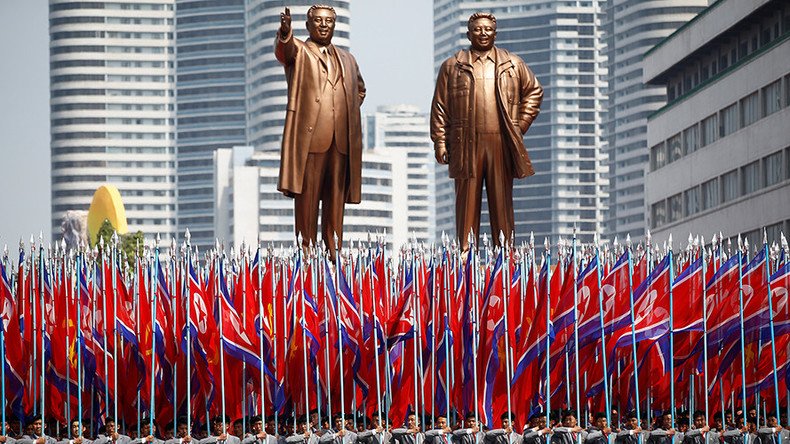‘US is still at war with North Korea, but historical context ignored’

The Korean War has been going on for 70 years: the US continues to exert pressure and threats on North Korea and therefore encourages it to develop nuclear weapons, says Mark Selden, senior research associate in the East Asia program at Cornell University.
As tension rises and the media press for red lines, what historical context is missing from the discussion? Is the North Korean government just irrational and belligerent or are there historical forces behind Pyongyang's behavior?
RT asked Mark Selden, senior research associate in the East Asia program at Cornell University.
Mark Selden: The main story is that the Korean War has been going on for seven decades. A small, weak North Korea faces the most powerful country in the world. We are still at war, and we have a new leadership that is continuing the policies of the former leaders but possibly jacking them up a notch or two. We are exerting extremely strong pressure and threats on North Korea. They have one weapon to deal with us, and it's one that we encouraged them to develop over the last decade by abandoning previous efforts to reach a peace agreement in the Korean War. That is their nuclear weapons. What we know from the experience of these decades is that every time they're faced with major threats from the United States, or the United States and South Korea, or the United States and Japan and South Korea, as they are at the moment, their approach is to test again and to make clear that they are a player in the nuclear weapon realm. Of course, they're feeling the pressure doubly at the moment; they're feeling it doubly because of Vice President Pence's trip to South Korea [on Tuesday]. They are feeling it because Trump is has just unleashed his super bomb but not his nuclear bomb in [Afghanistan]. They are feeling it because Trump is talking about North Korea as crazy and also as the biggest threat.
RT: We hear a lot about the US sending a message to North Korea: we heard that last week when Trump used the 'Mother of All Bombs' that the US has sent a pretty strong message to Korea. Can you give some context as to the devastation that was brought on the Korean Peninsula during that war?
MK: The devastation, especially not just the Korean Peninsula but especially in North Korea was so devastating that we left not a single two-storey building in the entire country. If you look at Pyongyang now you see that it is a big city. In the 1950s everywhere throughout the country was destroyed. Not only buildings but we also went after dikes, and in general we brought havoc. It is easy to forget this because there's no talk about the Korean War in all of the current discourse in the official media.
RT: Why is that?
MK: Because the central line of the Trump administration is that these people are crazy and they have to be stopped at all costs. The American media has accepted this approach without much question as it typically does.
The statements, views and opinions expressed in this column are solely those of the author and do not necessarily represent those of RT.













